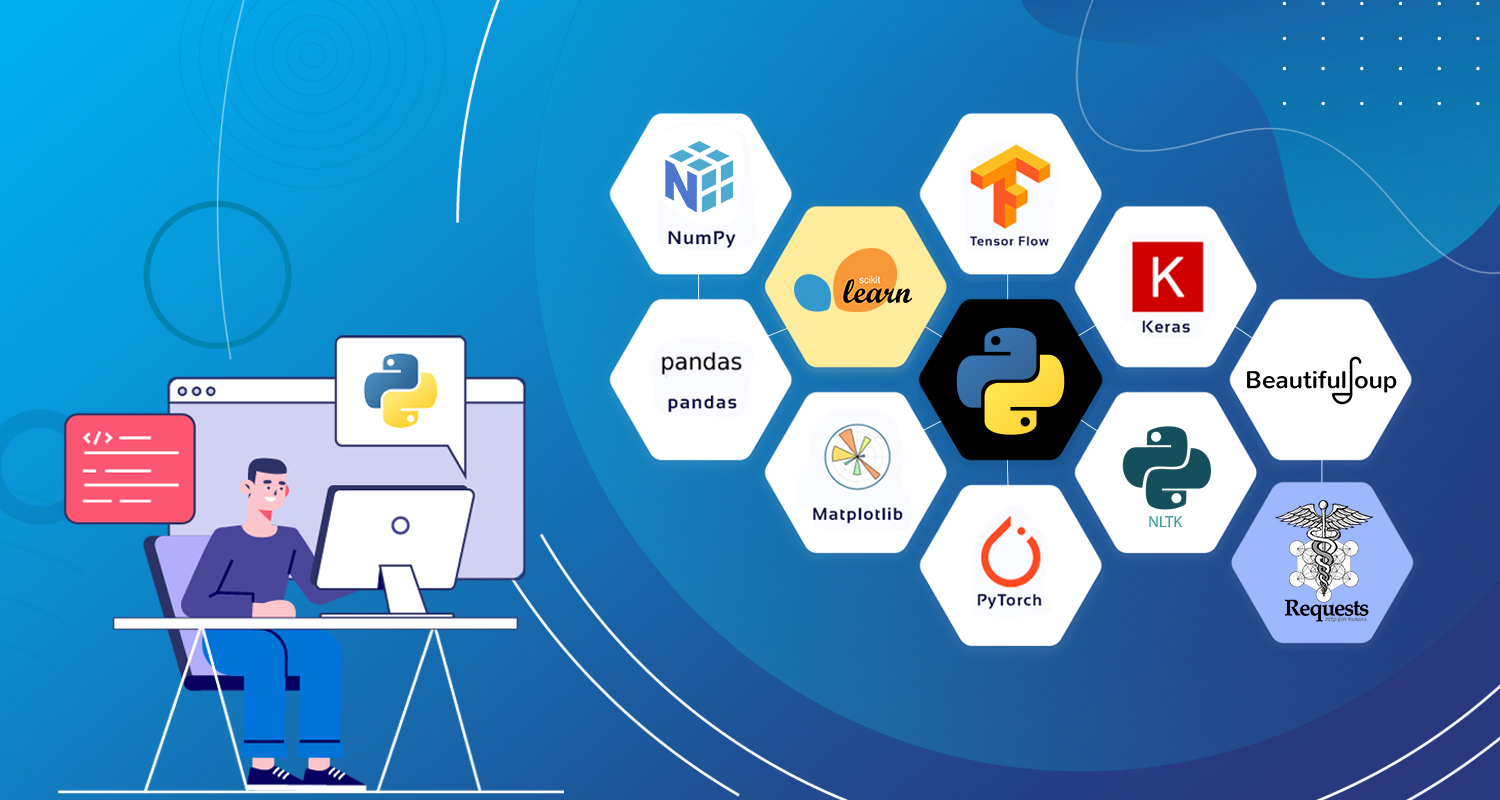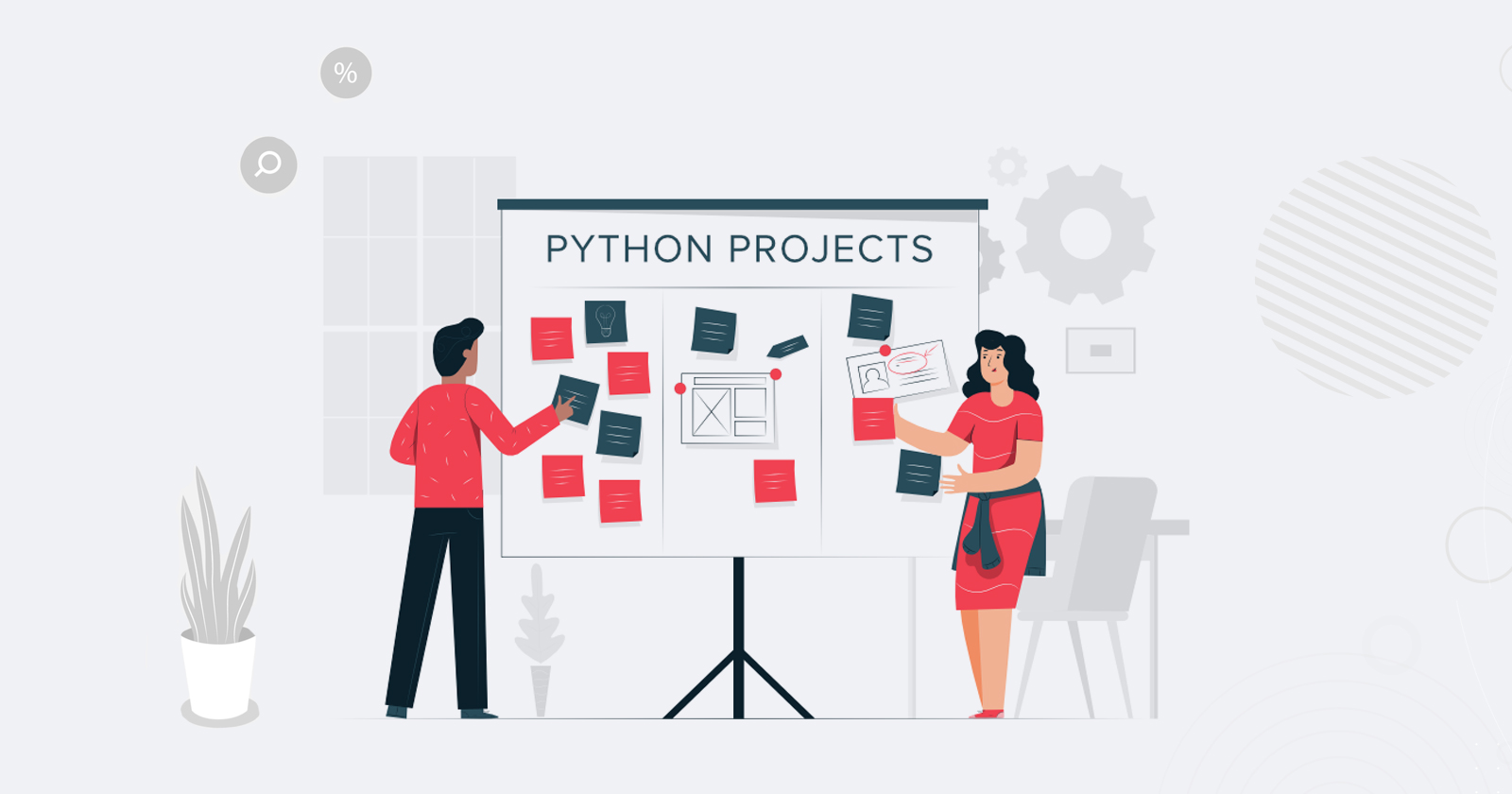
Due to its ease of use, adaptability, and extensive library support, Python has emerged as one of the most widely used programming languages among developers. Python libraries are collections of pre-written code that offer a wide range of functionalities. By utilizing pre-existing solutions, developers can save time and effort. In this blog entry, we will investigate 10 fundamental Python libraries that each engineer ought to be know about.
The fundamental Python scientific computing library is NumPy. It offers help for enormous, complex clusters and networks, alongside an assortment of numerical capabilities to effectively work on these exhibits. NumPy is widely used in scientific research, machine learning, and data analysis.
pandas is a strong information control library that gives information designs and information investigation devices. It is especially helpful for taking care of organized information, like plain information, time series, and social data sets. Pandas is an essential tool for data-driven applications because it makes it simple for developers to clean, transform, and analyze data.
Matplotlib is a plotting library that empowers engineers to make different sorts of perceptions, including line plots, disperse plots, bar outlines, histograms, and the sky is the limit from there. It gives an adaptable and adaptable connection point for making great figures and plots, making it irreplaceable for information perception undertakings.
A well-liked machine learning library, scikit-learn provides numerous algorithms for classification, regression, clustering, and dimensionality reduction tasks. It offers a standardized and consistent API, making it simple to test various algorithms and assess their performance. scikit-advance likewise incorporates helpful utilities for information preprocessing and model assessment.

TensorFlow is a powerful deep learning and machine learning open-source library. It provides an adaptable architecture for neural network models and other machine learning models. TensorFlow offers an undeniable level Programming interface (Keras) for fast model prototyping and a lower-level Programming interface for further developed customization. It has acquired far-reaching reception in both scholarly community and industry.
Keras is a TensorFlow-based high-level neural network API that is easy to use. It improves on the most common way of building and preparing profound learning models, permitting engineers to zero in additional on model design and trial and error. Keras upholds various back ends, including TensorFlow, Theano, and Microsoft Mental Toolbox.
NLTK is an extensive library for normal language handling (NLP) in Python. It gives apparatuses and assets to undertakings like tokenization, stemming, lemmatization, grammatical form labeling, parsing, and semantic thinking, from there, the sky is the limit. For the development of NLP applications like chatbots, sentiment analysis, and machine translation, NLTK is extensively utilized in both academia and industry.
PyTorch is another well-known open-source profound learning library that accentuates adaptability and dynamic calculation charts. It permits engineers to characterize and prepare brain networks utilizing basic programming, making it simple to troubleshoot and explore different avenues regarding models. PyTorch has a large following in the community and supports GPU acceleration.
BeautifulSoup is a Python library for parsing HTML/XML documents and web scraping. It’s a useful tool for web scraping, data mining, and web automation because it makes it easy to extract data from web pages using Python. BeautifulSoup upholds different parsing libraries and is broadly utilized in web advancement and information extraction projects.
requests is a basic yet strong library for making HTTP demands in Python. It gives an exquisite and direct Programming interface for sending HTTP/1.1 requests and dealing with reactions. demands upholds different validation strategies, SSL/TLS check, treat taking care of, and then some, making it a fundamental apparatus for connecting with web administrations and APIs.
These 10 fundamental Python libraries cover a great many functionalities and are broadly utilized in various spaces of programming improvement. Whether you’re dealing with information examination, AI, web scratching, or normal language handling, knowing about these libraries will essentially upgrade your efficiency and permit you to assemble strong and effective applications. Keep exploring and experimenting with these libraries to unlock their full potential and take your Python development skills to the next level.